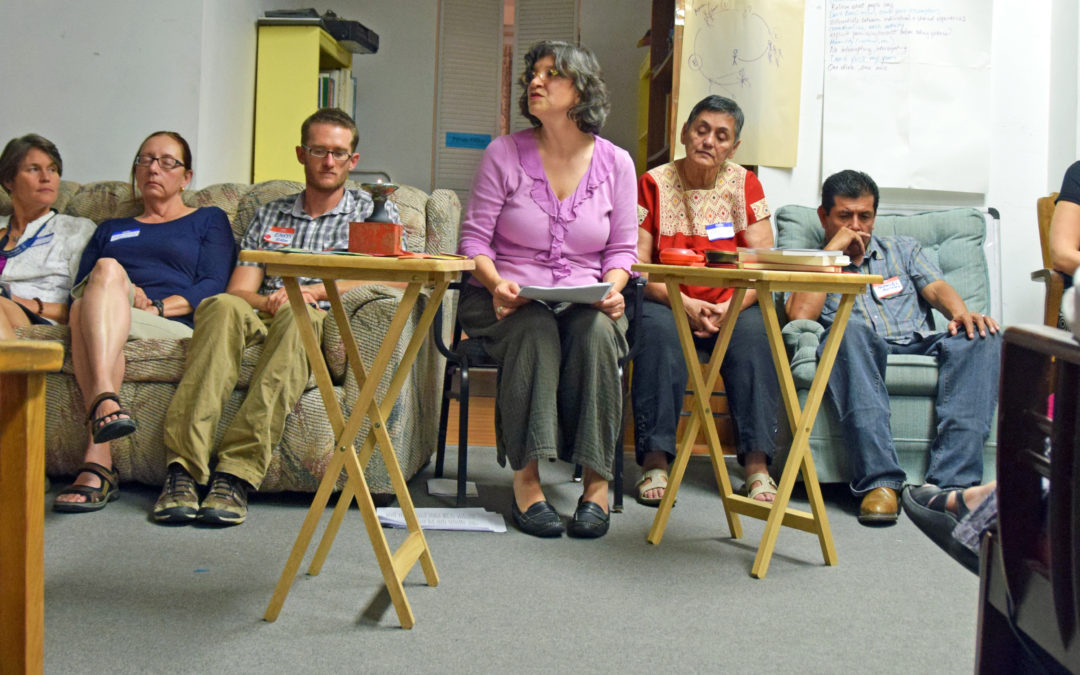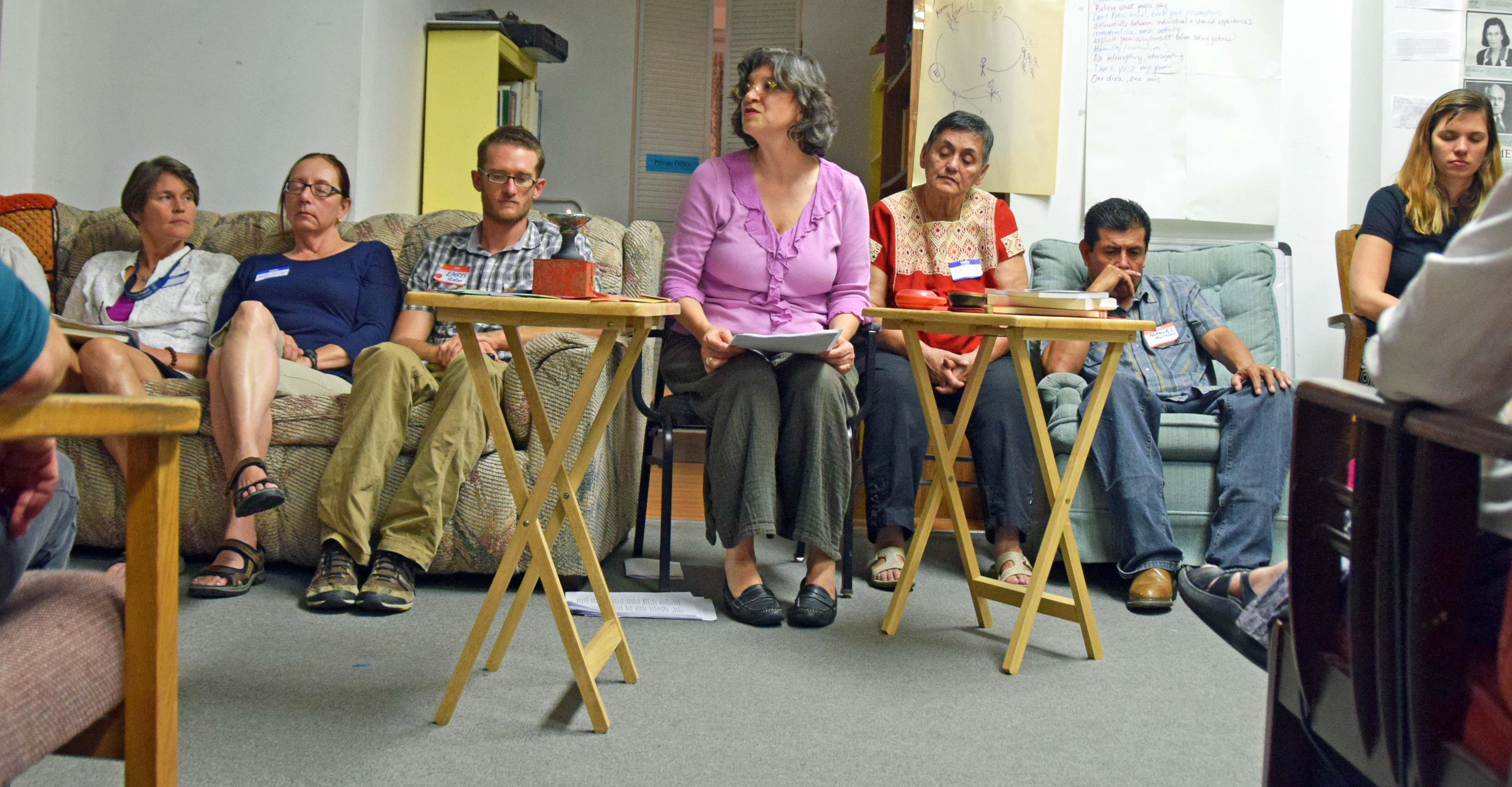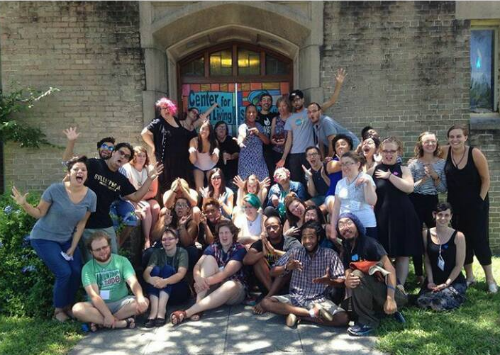
Responding To The Challenge The World Has Laid At Our Feet
Rev. Carolyn Patierno talks about how her eyes were opened by CSJ’s Border Witness Program and how this helped motivate her congregation’s decision to buy a house for refugee families. For more on this audacious decision see the linked Boston Globe article.
For a brief moment in the fall of 2014 I had the eye-opening experience that was UUCSJ’s Border Witness program, in Arizona and Mexico. It wasn’t that immigration injustice had escaped my awareness until then, but rather that the enormity of the injustice was difficult to comprehend until I was at close range.
That experience has stayed with me these two years since, during which the world has seen the most significant human migration in history.
We know that people only leave their home countries and seek refuge elsewhere because their lives have become so dire that for their own sake and that of their families, they must leave. We have all seen the images of our human kin desperately seeking safety, fleeing all they have ever known. Whether by raft over oceans or by foot through deserts, these journeys are harrowing and offer only a dim promise of home. But “dim” to many is better than dead.
In the fall of 2015 the house that sits next to All Souls / New London came up for sale. The conversation went something like this:
“Should we buy it? How could we NOT buy it?”
“What will we use it for?”
“We’ll figure it out. Its purpose will become clear.”
Which, as you might imagine, wasn’t the best sales pitch for a congregation.
Soon thereafter the plight of Syrian refugees began to be amplified in the media. A leader in the Muslim community came to the table at the local clergy association meeting and challenged faith leaders to do something. He challenged us to do something BIG, in fact. And so we set to work. All Souls is working with 7 other faith communities in an effort that’s been named “Start Fresh”. Since we started last fall, two families have been settled in New London so far – one from Syria and the other from the Sudan.
And very early on in the process, the purpose for the house next door became crystal clear: it would be a house of hospitality for newly resettled refugee families. It would be the first stop in the long road that is resettlement.
The house is currently being brought back to health and life. We hope it will be ready to receive at least two more families by November 1.
Every day, the faces of the “tired and poor masses” float through heart and memory, whether they come from Central America and across the harsh desert, or from Syria and across the dangerous sea. Systems of injustice and perpetual war need to be dismantled and until they are, we bought a house, put our hands to the task and responded to the challenge the broken and beautiful world has laid at our feet: To act justly and to love mercy and to walk humbly with [our] God.
Or, as Edward Everett Hale said:
I am only one
But still I am one.
I cannot do everything,
But still I can do something.
And because I cannot do everything
I will not refuse to do the something that I can do.
Amen.
To see what All Souls New London is currently doing or to see pictures of the House of Hospitality, check out their Facebook page at https://www.facebook.com/allsoulsnewlondon/


 Another participant from the white cohort added, “I believe Grow transformed my work from ‘facebook activism’ into true action. I better understand how organizing for change means matching commitment with a plan for how to do it… If we truly want to show up for the world in the ways our principles commit us to, we need to do white-on-white work to dismantle white supremacy.”
Another participant from the white cohort added, “I believe Grow transformed my work from ‘facebook activism’ into true action. I better understand how organizing for change means matching commitment with a plan for how to do it… If we truly want to show up for the world in the ways our principles commit us to, we need to do white-on-white work to dismantle white supremacy.”